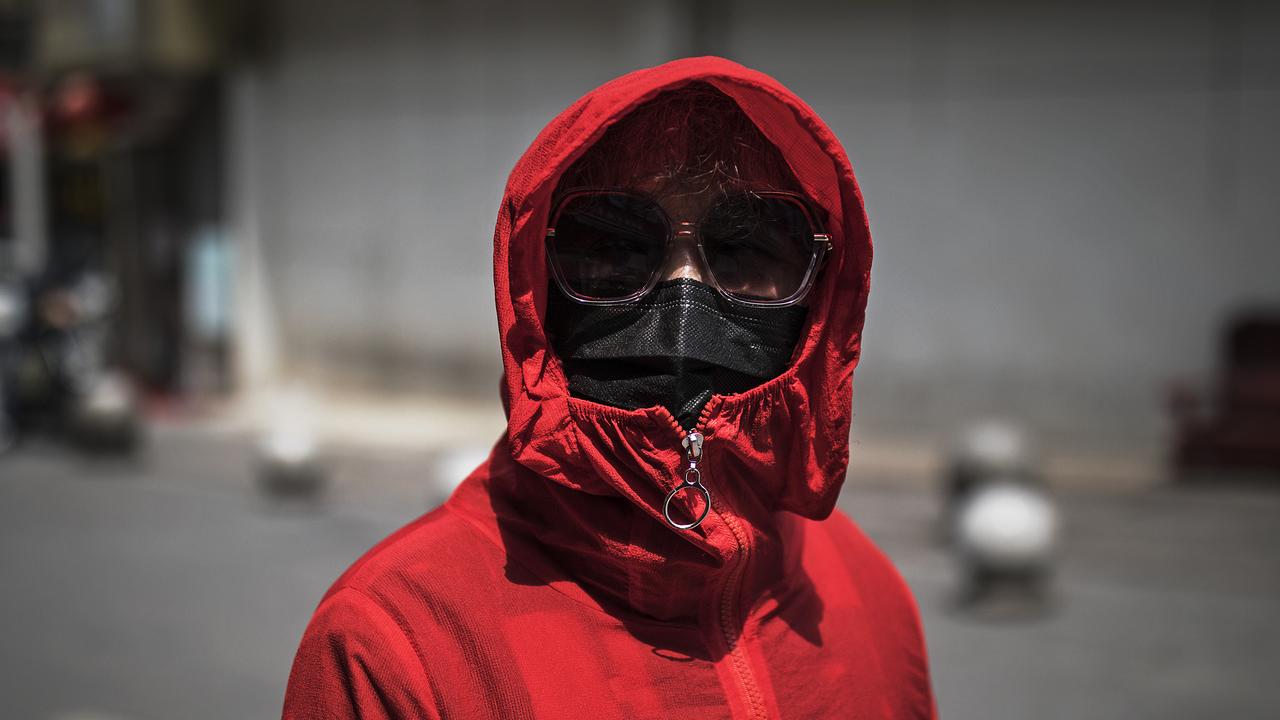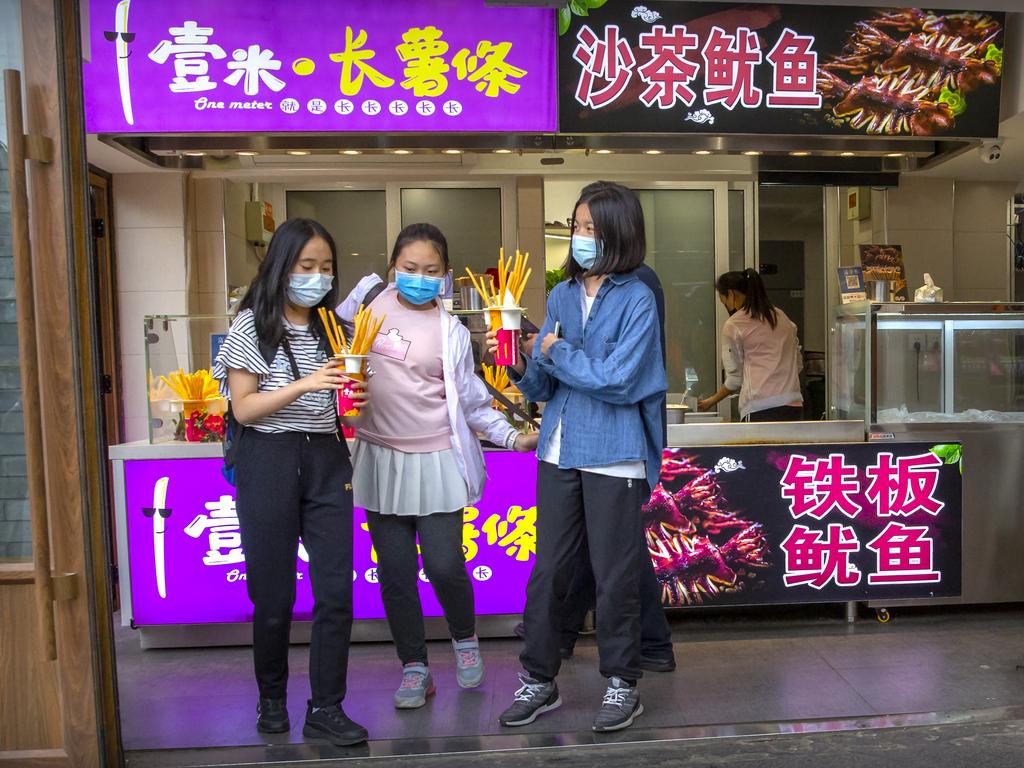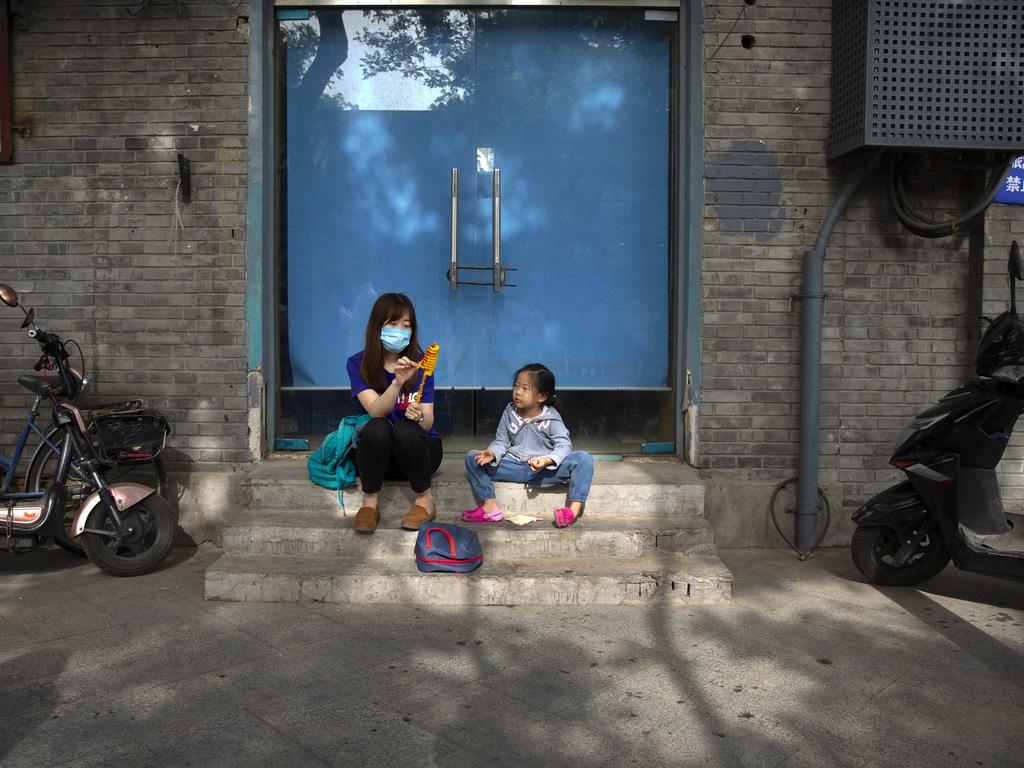Coronavirus: One word missing from new COVID-19 probe after Australia secures support of 62 nations
Australia has secured the support of 62 nations for an independent probe into the origins of the coronavirus that China has slammed.
Australia has secured the support of 62 nations for an independent probe into the origins of the coronavirus that China has slammed as a dangerous “blame game’’ that could spark a trade war.
Scott Morrison’s push for an independent probe is now set to secure strong international support at this week’s World Health Assembly.
But the diplomatic breakthrough has come with a price: all references to China, the epicentre of the original outbreak, have been stripped from the motion.
There’s even hopes that China could back the probe because it has been framed without reference to how and where the virus originated.
But given the US President Donald Trump has taken to referring to the coronavirus as “the plague from China”, there’s little doubt that he will make political mileage over the new inquiry.

RELATED: Australia’s beef with China: Can we afford to retaliate?
RELATED: China boycott a threat to tourism and universities
Foreign Affairs Minister Marise Payne said on Sunday night she was hopeful the inquiry will now proceed.
“There is positive support for an independent review into the pandemic to help the world learn the lessons necessary to protect global health,’’ she said.
“This is about collaborating to equip the international community to better prevent or counter the next pandemic and keep our citizens safe.
“Australia and a significant number of countries are co-sponsoring the EU-led resolution, which includes a call for an impartial, independent and comprehensive evaluation, to be presented at this week’s World Health Assembly meeting.”
The new draft motion urges the World Health Assembly to establish an “impartial, independent and comprehensive evaluation … to review experience gained and lessons learned from the WHO-co-ordinated international health response to COVID-19.”

It will probe the effectiveness of the mechanisms at WHO’s disposal, WHO’s contribution to United Nations-wide efforts; and the actions of WHO and their timelines pertaining to the COVID-19 pandemic, and make recommendations to improve global pandemic prevention, preparedness, and response capacity, including through strengthening, as appropriate.
The draft resolution will be proposed by Albania, Australia, Bangladesh, Belarus, Bhutan, Botswana, Brazil, Canada, Chile, Colombia, El Salvador, Guatemala, Iceland, India, Indonesia, Japan, Mexico, Monaco, Montenegro, Mozambique, New Zealand, North Macedonia, Norway, Paraguay, Peru, Republic of Korea, Republic of Moldova, Russian Federation, San Marino, Sierra Leone, South Africa, the European Union and its Member States, Turkey, Ukraine, United Kingdom of Great Britain and Northern Ireland and Zambia.
Why is it that China, for decades, and with a population much bigger than ours, is paying a tiny fraction of $’s to The World Health Organization, The United Nations and, worst of all, The World Trade Organization, where they are considered a so-called “developing country†and...
— Donald J. Trump (@realDonaldTrump) May 16, 2020
US Secretary of State Mike Pompeo has previously urged all countries back Australia’s push for a probe into how the pandemic was triggered.
“China is still refusing to share the information we need to keep people safe, such as viral isolates, clinical specimens, and details about the many COVID-19 patients in December 2019, not to mention ‘patient zero’,” Mr Pompeo said.
“Instead it covered up how dangerous the disease is. It didn’t report sustained human-to-human transmission for a month until it was in every province inside of China, it censored those who tried to warn the world in order to halt the testing of new samples, and it destroyed existing samples.”
China admitted at the weekend that it ordered unauthorised laboratories to destroy coronavirus samples earlier on in the pandemic, according to the South China Morning Post.
Liu Dengfeng, an official at China’s National Health Commission insisted it was not a cover up but designed to “prevent the risk to laboratory biological safety and prevent secondary disasters caused by unidentified pathogens”.
“The remarks made by some US officials were taken out of context and intended to confuse,” he said.
“Based on comprehensive research and expert opinion, we decided to temporarily manage the pathogen … and imposed biosafety requirements on sample collection, transport and experimental activities, as well as destroying the samples.”
China has previously insisted it “won’t give in to US pressure in the form of groundless accusations or investigations into the “origin and spread” of the COVID-19 outbreak.”
China’s propaganda news website The Global Times again warned at the weekend that Australia and the US should expect consequences after trade threats.
“China has plenty of countermeasures in its toolbox, and it is up to the US to make the choice,’’ the editorial said.
“If the US continues to announce restrictions suppressing Chinese companies, China may take countermeasures against similar companies of equal importance to the US economy, such as putting those companies on a list of unreliable entities.
“China-US tensions have entered a complicated stage, and further muddling trade relations through a COVID-19 blame game could lead to renewed uproar, increasing the uncertainty surrounding the trade deal. Trump would be wise not to sabotage the agreement before the deal falls apart and unintended consequences arise.”

Trade Minister Simon Birmingham also confirmed on Sunday that his Chinese counterpart, Commerce Minister Zhong Shan, was refusing to return his calls.
“The Australian government is always open for thoughtful and engaging dialogue with our international partners, including where we may disagree. And it is ultimately up to them as to whether or not they decide to reciprocate in kind,” Senator Birmingham said.
“The call ought to be returned. But, as I say, it’s not a reflection upon the Australian government. We are open to have that discussion, even where there are difficult issues to be discussed at any time.”
Samantha Maiden is news.com.au’s national political editor | @samanthamaiden




